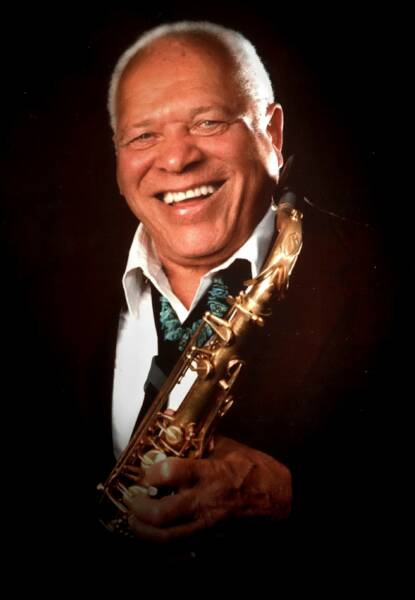Chicago Tribune
September 21, 2007
By Howard Reich
Ammons' star is once again shining, thanks to a centennial showing
He was once a star, a Chicago pianist who practically epitomized the musical genre he helped perfect.
But his name, Albert Ammons, and the music he championed, boogie-woogie, practically have vanished from public awareness in the United States.
Earlier jazz giants such as Louis Armstrong and Jelly Roll Morton still hold a significant place in American musical memory. Yet Ammons' keyboard virtuosity -- which richly deserves to be remembered -- survives mostly in history books, and in the admiration of a small cadre of connoisseurs.
To correct that situation, the pianist's descendants this weekend will convene an "Albert Ammons Centennial Concert," a day before the exact 100th anniversary of Ammons' birth. The all-star roster will spotlight several leading artists, including nonagenarian saxophonist Franz Jackson and pianists Erwin Helfer, Butch Thompson and Axel Zwingenberger.
"We're hoping this event will widen the audience for this great music," says Lila Ammons, the pianist's granddaughter and a vocalist in her own right. "It has been almost a 30-year dream to put on an event like this."
Adds Edsel Albert Ammons, who's Lila Ammons' father and Albert Ammons' son, "We think this concert might resurrect some respect for Albert Ammons and Meade Lux [Lewis] and Pete Johnson, who were there at the beginning."
Indeed, the three pianists virtually personified boogie-woogie in the late 1920s, '30s and '40s. The relentlessly chugging rhythms of their left-hand work and the fast-flying figures on their right-hand figurations made boogie-woogie a popular phenomenon, particularly after their celebrated appearance in Carnegie Hall's "Spirituals to Swing" concert in 1938.
But like all musical fads in the U.S., this one ran out of steam, its basic-blues harmonies and crisply articulated rhythms rendered somewhat historic by the ultra-sophistication of bebop and other jazz styles that followed.
"Our country has an interesting way of moving on," says Edsel Albert Ammons, a retired bishop of the United Methodist Church. "We really have very little respect for the history of anything."
In the case of boogie-woogie, however, matters may be worse, and not only because so few musicians play the rambunctious style with the skill of earlier masters. For as with another great black musical genre -- ragtime -- those listeners who do remember boogie-woogie often look down on it.
"I saw a jazz timeline recently in a book that barely even mentioned boogie-woogie," recalls Lila Ammons.
"And when they did mention it, it was in a really derogatory way, defining it as a crude, simplistic music.
"Well, I would like to see them try to play it."
As Lila Ammons implies, when boogie-woogie is dispatched at the highest technical and artistic level, it ranks among the most virtuosic and rhythmically thrilling forms of American music.
It's worth noting, too, that though Albert Ammons played a critical role in developing it, he holds another remarkable musical distinction as well: He was father of Gene Ammons, a legendary Chicago saxophonist whose ballad performance placed him among the elite tenor players this country has produced.
To those who revere the art of boogie-woogie, Albert Ammons always will stand as a towering figure. Unfortunately, his death in 1949, at age 42, deprived him of a chance to benefit from America's traditional-jazz revival of the 1950s.
Nevertheless, a concert such as this weekend's marathon could be revelatory to listeners who have yet to discover boogie-woogie.
"There's something about this music that's very powerful," says Lila Ammons. "My mission is to expose people to it."
Albert Ammons Centennial Concert
A boogie-woogie virtuoso gets his due
When: 4 p.m. Saturday
Where: Chicago Temple, 77 W. Washington St.
Price: $25; 312-236-4548
------
hreich@tribune.com
